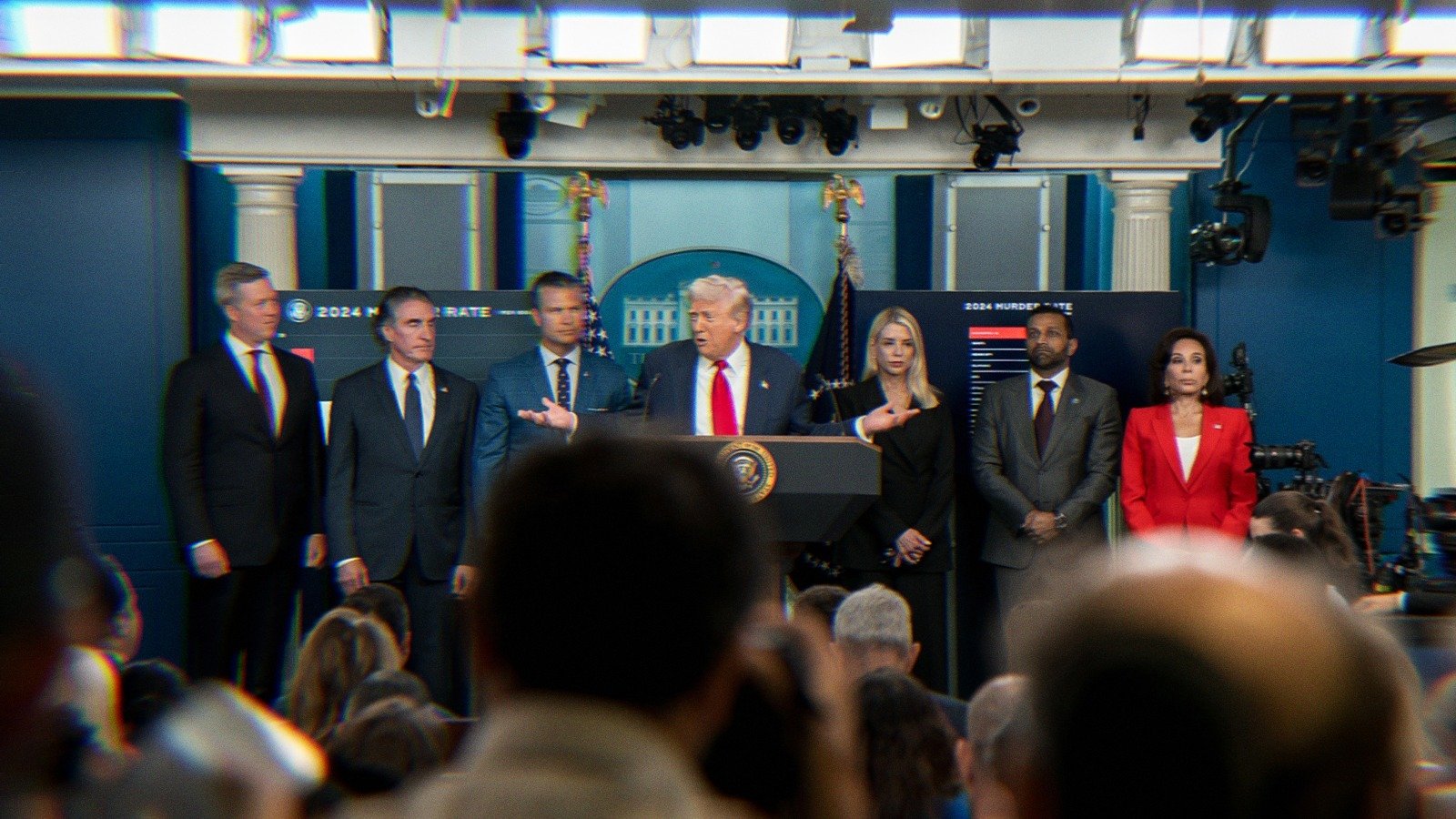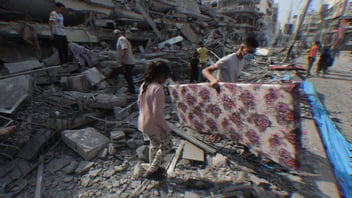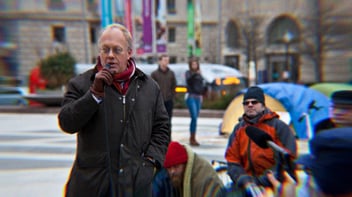The Long March to Trump’s Occupation of D.C.
 Image Description: Trump holding a press conference on crime in DC, Monday, August 11, 2025.
Image Description: Trump holding a press conference on crime in DC, Monday, August 11, 2025.
This essay appeared in the Aug. 12, 2025 edition of UNFTR’s premium newsletter. Become a UNFTR member to receive our bonus newsletter each week and for other perks.
A militarized D.C. has been a long time coming.
And that’s not just a reflection of the precarious nature of the mayor and city council’s control of the city, otherwise known as Home Rule, but the methodical build-up of seemingly battle-ready police forces that have come to personify 21st-century policing in the United States, which has long served as an extension of colonial rule.
In city after city, and even in small towns, departments now deploy protective gear suited for warfighters, sophisticated surveillance systems, and mine-resistant ambush-protected vehicles (MRAPs) originally designed for post-9/11 operations in Iraq and Afghanistan.
The Domestic Shadow of Global Hegemony
For a generation of Americans, war abroad and militarized presence at home are all they know. That is the domestic shadow of global hegemony—you watch (or cover your eyes) as the nation bombs, drones, and deploys troops into foreign countries to prosecute borderless and illegal wars, while living through the inevitable protectionism at home, justified by the need to defend every inch and pixel instigated by—and sustained by—endless imperial aggression.
“Police militarization has always echoed American wars abroad, which have often involved terrifying home raids, and whose bombs rain the heaviest destruction on what are almost invariably racialized communities,” Jessica Katzenstein wrote for Brown University’s Costs of War Project in September 2020, as the country was still reeling from the racial reckoning following George Floyd and Breonna Taylor’s police slayings. “The domestic effects of these wars overseas are a version of what Aimé Césaire in Discourse on Colonialism called the ‘boomerang effect of colonization’: American imperialism, perpetually returning to haunt its own people.”
The 1033 Program: Military Equipment Transfers to Police
Total Value of Equipment Transferred
Number of Items Transferred
With President Trump’s actions this week, deploying the National Guard, mobilizing the FBI, and effectively federalizing the Metropolitan Police Department, D.C. is the latest city to be overtly occupied by a militarized presence in the name of law and order.
Trump’s actions are no doubt unprecedented, untethered from the reality of crime in the capital, authoritarian, and anathema to the theory of American freedom.
The Bush-Cheney Blueprint for an All-Powerful Executive
Yet Trump didn’t get here on his own.
The framework, policies and infrastructure already existed before he re-entered the White House in January, with the Bush-Cheney unitary executive theory serving as the bedrock for his presidency, characterized by his heavy-handed use of federal resources to quash dissent; create a radical censorship regime that conflates pro-Palestine speech with antisemitism; unleash armies of ICE agents to arrest and detain thousands of immigrants—including attempts at banishing some to CECOT, a notorious prison complex in El Salvador—moving other detained immigrants to Guantanamo Bay; disappearing international students sympathetic to the Palestinian cause to unknown detention centers; and awarding lucrative federal contracts to Peter Thiel’s Palantir, prompting fears of an Orwellian surveillance apparatus.
While MAGA claims to have kneecapped the neocon movement, it has all but publicly embraced the Bush-Cheney unitary executive theory—consolidating power in the Executive, a hallmark of the post-9/11 era.
Since that time, the presidency has evolved into an all-powerful force, a monarch in disguise, gradually accumulating more and more power—a coup of sorts that has been embraced by every president since Bush. Critically, the U.S. Congress has all but abdicated its duties, most importantly its war-making responsibilities, with the party in power often deferring to its standard-bearer in the White House.
This power imbalance is at the heart of what’s crippling democracy, along with money in politics, yet another contemporary shift that’s metastasizing into an ever-greater threat to democratic principles.
During the Obama years, many on the left vigorously tried to raise the alarms over the ever-expanding Executive Branch, fearing—rightly as recent events have shown—that seemingly mundane bureaucratic operations would set a precedent for a more dangerous president. But many in this camp were not only up against recalcitrant Republicans, but liberals wearing Obama-tinted glasses, many of whom simply dismissed such concerns because they trusted Obama to wield his power with grace.
Such deference was no good to the historic number of whistleblowers hit with Espionage Act charges under Obama’s DOJ, the reporters swept up in the national security dragnet, including journalists at the Associated Press, New York Times and Fox News, or the so-called “Magnificent 7” who were prophetic in their concerns over the civil liberties implications of the 2013 NDAA, along with the erosion of the Posse Comitatus Act.
Empire in Decline
As the symptom of a corporate-captured empire whose working class has been decimated economically and politically, Trump is, in a sense, a symbol of our declining democracy.
His unilateral war against Iran, aforementioned attacks on civil liberties, and previous deployment of warfighters and National Guard members to Los Angeles are precursors to what he seems to have in store next: occupied U.S. cities, which already have served as testing grounds for militarized police forces—all thanks to 9/11-era initiatives like the 1033 program, which allowed $1.6 billion in military-style equipment and other assets to be delivered to local law enforcement between 2001 and 2020.
The boomerang of colonization is in full effect.
Image Source
- The White House, Public domain, via Wikimedia Commons. Changes were made.
Rashed Mian is the managing editor of the award-winning News Beat podcast and co-founder of the newly launched Free The Press (FTP) Substack newsletter. Throughout his career, he has reported on a wide range of issues, with a particular focus on civil liberties, systemic injustice and U.S. hegemony. You can find Rashed on X @rashedmian and on Bluesky @rashedmian.bsky.social.


